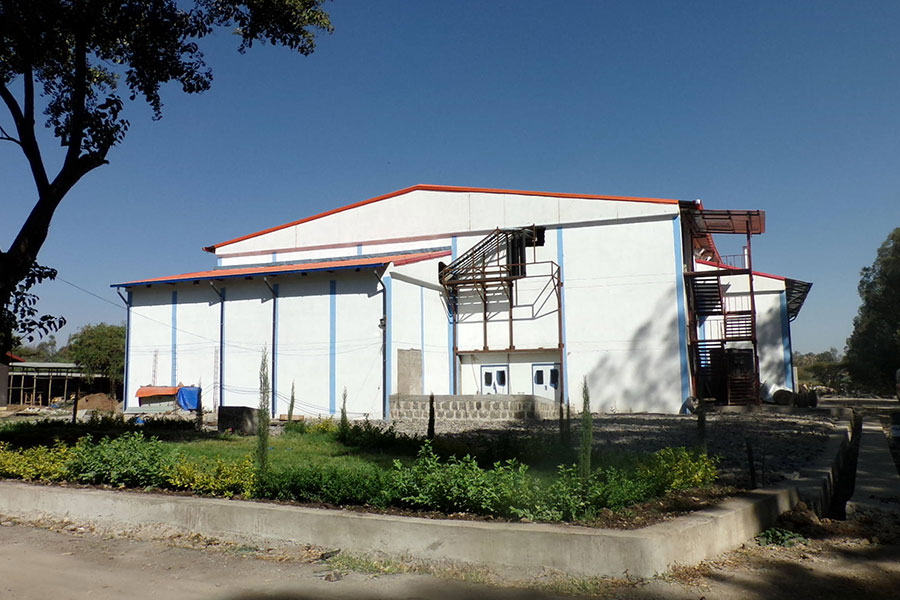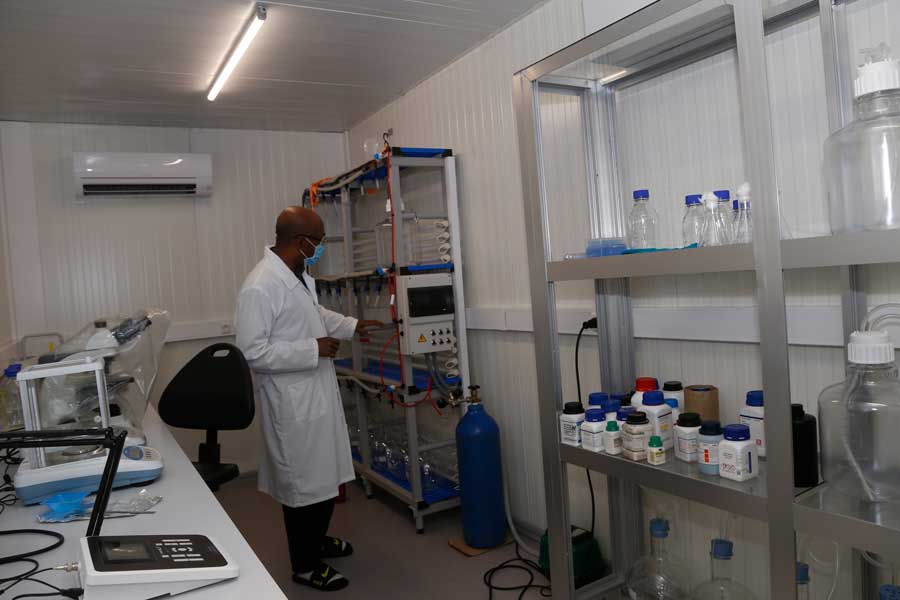
Radar | Jun 27,2020
Jun 1 , 2019
By SELAMAWIT MENGESAHA ( FORTUNE STAFF WRITER )
Prime Minister Abiy Ahmed (PhD) named former head of the Oromia Cooperative Promotion Agency, Dagnachew Shiferaw, as the new head of a federal agency charged with overseeing the leather industry.
Dagnachew replaced Bogale Feleqe, whose appointment of just six months was terminated on May 21, 2019. Dagnachew will be leading the Leather Industry Development Institute (LIDI), which oversees the leather industry that has been grappling with multiple challenges in the last couple of years.
Before his new position, Dagnachew served in various capacities in Oromia Regional State, including as manager of Oromia Transport Agency, deputy manager of Oromia Road & Transport Authority and as an administrator in various Zonal administrative offices.
Bogale has now moved to Oromia Regional State where he will serve as commissioner of the region's Disaster Risk Management Commission. He had previously replaced Wendu Legesse, the long-serving head of LIDI who resigned to join UNIDO.
Before he came to the short-lived director generalship at LIDI, Bogale had served as a state minister at the Ministry of Trade & Industry for two years in charge of textile and leather industries. Bogale, who holds an MA degree in Educational Planning & Management, has also served as state minister of social policy and planning sector under the Office of the Prime Minister.
Last Thursday, May 30, 2019, Dagnachew met with the management staff of the Institute for a welcome gathering and to bid farewell to the outgoing director general.
The Institute is mandated to keep and update information on the leather industry, prepare and promote project profiles for investment opportunities, and provide services and production of leather industry products by training skilled workers, conducting market research and supporting the product value chain.
It supports 39 Technical, Vocational, Educational & Training (TVET) Colleges across the country that provide schooling in the leather industry. In addition, it assists 22 private shoe export factories and 300 small and medium-size shoe and leather product enterprises.
The leather industry has been hit by shortages of hides and skins and quality control issues surrounding raw products. These problems are directly associated with the failures of the tanneries in Ethiopia that have sustained low production capacities for years, some of them for decades.
The difficulties faced in obtaining high-quality hides and skins have been blamed on the value chain starting from animal husbandry, poor veterinary services, traditional animal slaughtering methods and poor collection and handling of hides and skins at the lower levels of the industry.
Aside from the quality issue, the leading cause cited for the decline in leather export performance is a directive that made it mandatory to export only value-added leather products and a taxation of 150pc on such products. The restriction has since been lifted from “crust leather” - which is dried after tanning but has not yet been dyed - but left the taxation intact on all other leather products.
An estimated 26 leather tanneries operate in Ethiopia with 12 of them established with foreign direct investment from India, Taiwan, Italy, Britain and China. Additionally, another 14 tanneries operate as local firms.
The Institute had developed and submitted a report listing the problems the leather industry faces and has received a response from the government, according to Bogale.
"The recent move of the Ministry of Finance in waving the 150pc tax on semi-finished leather, which had hamstrung the industry, is the major outcome of our report," he told Fortune.
In his tenure, Dagnachew should consider following up on unfinished business at the Institute, including the environmental protection issues of industrial discharges by the tanneries, recommended Bogale.
Efforts by Fortuneto solicit comments from Dagnachew were not successful by the time this paper went to print.
PUBLISHED ON
Jun 01,2019 [ VOL
20 , NO
996]

Radar | Jun 27,2020

Radar | Nov 11,2023

Fortune News | Jan 12,2019

Radar | Dec 04,2021

Radar | Jun 01,2025

Fortune News | May 23,2020

Fortune News | Apr 15,2023

Radar | Dec 26,2020

Fortune News | May 11,2019

Fortune News | Aug 01,2020

Dec 22 , 2024 . By TIZITA SHEWAFERAW
Charged with transforming colossal state-owned enterprises into modern and competitiv...

Aug 18 , 2024 . By AKSAH ITALO
Although predictable Yonas Zerihun's job in the ride-hailing service is not immune to...

Jul 28 , 2024 . By TIZITA SHEWAFERAW
Unhabitual, perhaps too many, Samuel Gebreyohannes, 38, used to occasionally enjoy a couple of beers at breakfast. However, he recently swit...

Jul 13 , 2024 . By AKSAH ITALO
Investors who rely on tractors, trucks, and field vehicles for commuting, transporting commodities, and f...

Nov 1 , 2025
The National Bank of Ethiopia (NBE) issued a statement two weeks ago that appeared to...

Oct 25 , 2025
The regulatory machinery is on overdrive. In only two years, no fewer than 35 new pro...

Oct 18 , 2025
The political establishment, notably the ruling party and its top brass, has become p...

Oct 11 , 2025
Ladislas Farago, a roving Associated Press (AP) correspondent, arrived in Ethiopia in...